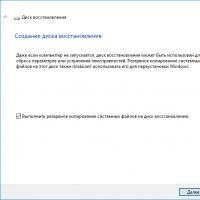How to disable the "Show alerts" request from sites in the Google Chrome browser?
Problem:
More and more sites are showing intrusive, repeated requests for permission to show notifications about updates (news, new articles, hot new products, etc.) in the Google Chrome browser. How can I refuse to see such requests?
There are too many alerts in this world. Various applications on the phone, social networks, instant messengers - all this requires constant attention and often a waste of nerve cells.
Now Google, with its browser that has defeated all its competitors, is trying to give people a heart attack, each time persistently offering both the desktop and mobile versions of Chrome to subscribe to pop-up alerts from some Lifehacker or Esquire. You can, of course, choose “block” and never see such a request on this particular site again. But there are a lot of sites, and patience is not endless, especially if a priori there is no desire to receive stupid notifications from sites.
Request to display alerts on the Esquire website in the desktop version of the Google Chrome browser.
I understand that someone may need similar alerts, for example, from a news and/or highly specialized site, in the case where the sooner you find out something, the more you can do something. But why receive alerts from Esquire? Again, I understand that Google has introduced the feature, and site owners themselves decide whether to implement this perverted form of subscription to updates or not. In general, into the firebox “Esquire”, “Lifehacker” and others like them. Let's force them to stop coming to us with the same request every time they visit.
To do this, in the desktop version of the browser you need to go to the settings (through the main menu of the browser or by entering in the address bar chrome://settings/), at the bottom of the settings page, activate the “Show additional settings” link, in the “Personal data” section, click the “Content settings...” button (or, again, just enter in the address bar chrome://settings/content), there find the “Alerts” section and activate the “Do not show notifications on sites” option.
 Google Chrome Alert Settings. The default setting is “Ask before showing site alerts (recommended).”
Google Chrome Alert Settings. The default setting is “Ask before showing site alerts (recommended).” You can set exceptions to the rules by clicking the corresponding button. Let's say you use the web versions of Telegram or WhatsApp instant messengers, and you want new messages to be displayed in the form of alerts (and not just sound and tab blinking). We go to the exceptions menu, enter, for example, for Telegram https://web.telegram.org:443 and select the “Allow” action. Ready. From Telegram, notifications will pop up, but requests for new permissions will not be shown. Here, with exceptions, you can explicitly prohibit any site from showing alerts.
Okay, now about the same thing, only regarding the mobile version of the browser. Google wisely decided that the perception of sites on a mobile phone and on a computer is different. For this reason, the policy for the same user regarding notifications from the same sites in mobile and desktop browsers is not synchronized across the account. There is nothing you can do, you will have to disable the request for notifications from sites separately and on mobile Chrome.
Everything is simple here. “Settings” - “Site settings” - “Alerts” - slide the slider to the “Blocked” position.
 Cloud storage Cloud Mail
Cloud storage Cloud Mail 25 online tools to generate easy-to-pronounce and random passwords
25 online tools to generate easy-to-pronounce and random passwords Dexpot - additional virtual desktops
Dexpot - additional virtual desktops Visual bookmarks Top-Page
Visual bookmarks Top-Page The browser now has notifications from social networks and support for e-books
The browser now has notifications from social networks and support for e-books Windows 10 Recovery Disk
Windows 10 Recovery Disk How to create a bootable USB flash drive
How to create a bootable USB flash drive